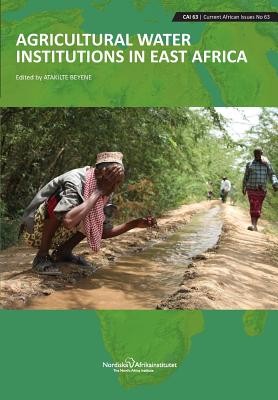
- We will send in 10–14 business days.
- Publisher: Nordic Africa Institute
- Year: 2015
- Pages: 102
- ISBN-10: 9171067779
- ISBN-13: 9789171067777
- Format: 17 x 24.4 x 0.5 cm, minkšti viršeliai
- Language: English
- SAVE -10% with code: EXTRA
Agricultural Water Institutions in East Africa (e-book) (used book) | bookbook.eu
Reviews
Description
Climate change is causing growing variability and uncertainty in rainfall in Africa. Since the continent's food production systems are dominantly rain-fed, these changes are putting food security at even higher risk. In order to reduce this dependency, institutional reforms in the agricultural water sectors have become a priority in research and policy. In this report, Atakilte Beyene, senior researcher at the Nordic Africa Institute, together with twelve researchers based in Africa, studies current agricultural water reforms in Kenya, Tanzania, Uganda, and other East African countries. The report consists of four case studies and an introductory section. The first case study evaluates the performance of community participation in water resources governance in the Mount Kenya Region. It uncovers the implication of a ban on traditional institutions on water security at a catchment level. The second case analyses the prospects of introducing pro-poor water schemes in conditions where climate change and water inequality are already challenges. It identifies incentive mechanisms that enhance more efficient distribution and utilization of water resources. The third case examines impacts of competitive and intensive farming strategies, especially irrigation schemes, on water demands. The final case study explores how advances in information and communication technologies improve water-use management systems across organizational and geographic scales.
EXTRA 10 % discount with code: EXTRA
The promotion ends in 22d.04:46:46
The discount code is valid when purchasing from 10 €. Discounts do not stack.
- Publisher: Nordic Africa Institute
- Year: 2015
- Pages: 102
- ISBN-10: 9171067779
- ISBN-13: 9789171067777
- Format: 17 x 24.4 x 0.5 cm, minkšti viršeliai
- Language: English English
Climate change is causing growing variability and uncertainty in rainfall in Africa. Since the continent's food production systems are dominantly rain-fed, these changes are putting food security at even higher risk. In order to reduce this dependency, institutional reforms in the agricultural water sectors have become a priority in research and policy. In this report, Atakilte Beyene, senior researcher at the Nordic Africa Institute, together with twelve researchers based in Africa, studies current agricultural water reforms in Kenya, Tanzania, Uganda, and other East African countries. The report consists of four case studies and an introductory section. The first case study evaluates the performance of community participation in water resources governance in the Mount Kenya Region. It uncovers the implication of a ban on traditional institutions on water security at a catchment level. The second case analyses the prospects of introducing pro-poor water schemes in conditions where climate change and water inequality are already challenges. It identifies incentive mechanisms that enhance more efficient distribution and utilization of water resources. The third case examines impacts of competitive and intensive farming strategies, especially irrigation schemes, on water demands. The final case study explores how advances in information and communication technologies improve water-use management systems across organizational and geographic scales.


Reviews